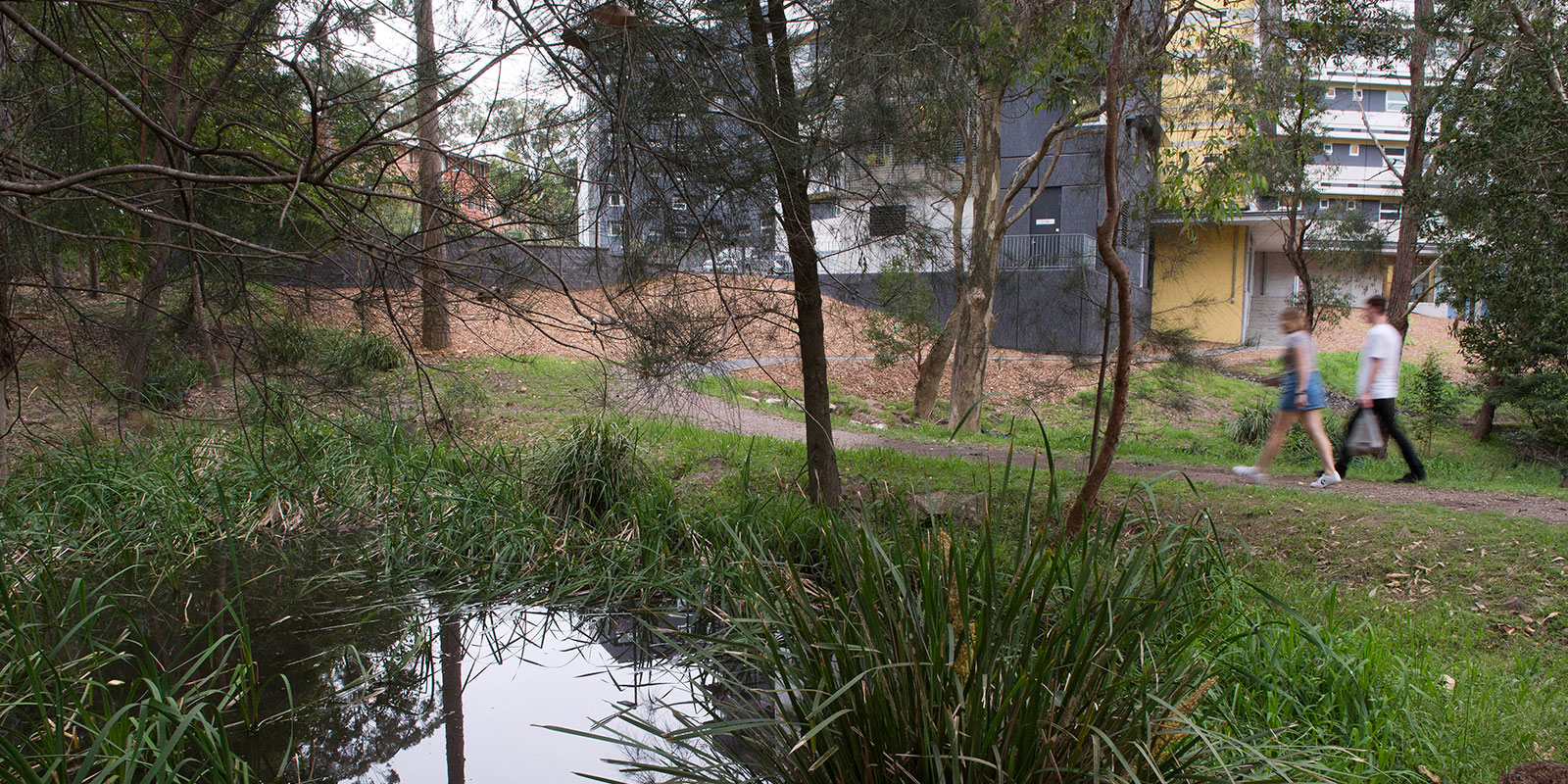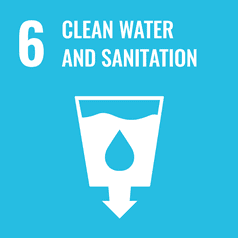

Goal 6:
Clean Water and Sanitation
Water-Conscious Building Standards
The University of Newcastle Environmental Sustainability Policy demonstrates our commitment to responsible water use in the built environment. When planning new buildings and precincts across our campuses, we actively seek opportunities to minimise water consumption and prioritise effective water management. Water efficiency is a key consideration in all major projects. Particularly relevant policy clauses are clauses 10 and 11.
These standards guide our approach to sustainable development and reflect our broader commitment to environmental stewardship.
Environmental Sustainability Policy
Section 1 - Introduction
(1) The University of Newcastle (
Section 2 - Policy
(2) The
- ethical decision making in accordance with the Ethical Framework;
- teaching and learning practices;
research ;- the management of
University campus and facilities; and - community engagement.
(3) The
- demonstration of a visible commitment to environmental sustainability by
University leaders; - dedication of resources to support the ongoing implementation of environmental sustainability actions and targets in the Environmental Sustainability Plan;
- demonstrating continuous improvement towards the achievement of the measures of success of our Environmental Sustainability Plan;
- monitoring the implementation of the Environmental Sustainability Plan, and reporting on the
University's achievement against our objectives on an annual basis toUniversity Council, Executive Leadership Team and within theUniversity's annual report; - actively promoting and engaging environmental sustainability initiatives to
staff andstudents at theUniversity ; and - environmental sustainability actions to contribute to the targets set in the United Nations (UN) Sustainable Development Goals 2015.
This current policy was effective from the 8th of December 2022, was active throughout 2023 and 2024, and will be reviewed in December 2025.
Section 3 - Our Sustainability Commitment
(4) The
Energy and Carbon
(5) The
(6) We will:
- report our greenhouse gas emissions under the National Greenhouse and Energy Reporting Scheme and monitor our electricity consumption;
- build strategic relationships with energy retailers and consider all opportunities for on-site renewable energy installations; and
- seek to better understand our emissions from travel so that we can explore ways we can offset these emissions.
(7) In implementing our Investment Policy we will explore opportunities for portfolio investments aligned with the UN Sustainable Development Goals, and use divestment, where possible, as a means of transitioning to a low carbon economy.
(8) In implementing our Procurement Policy we will assess the sustainability practices of potential suppliers and give preference to those who can demonstrate alignment with our sustainability goals.
(9) For new buildings, our building design practices will maximise all opportunities to achieve a six-star Green Star ‘Design & as Built’ as a minimum.
The Investment Policy was effective from the 28th of November 2023 and was reviewed on the 11th of September 2024. Its most recent review was conducted on the 25th of August 2025.
The Procurement Policy was effective from the 15th of September 2023 and was reviewed in March 2025.
Water
(10) We will:
- reduce our mains water usage, increase the natural irrigation of our bushland campuses, and seek ways to re-use our water;
- comply with the guidelines and standards for water, as required by our Local Councils, and always seek to protect the waterways, wetlands, and coastal areas upon which we operate;
- prevent the pollution of our water systems and aquatic ecosystems; and
- seek ways to minimise water consumption when planning new buildings and areas on our campuses.
(11) Our practices to manage our bushland campuses will give priority to effective water management, and water efficiency will be a consideration for all key projects.
Waste and Recycling
(12) We will:
- establish and work towards a recycling rate target for our general solid waste;
- educate our
staff ,students , contractors and community on waste and recycling through a variety of mechanisms and resources; - minimise the use of plastic and disposal items across our campuses;
- establish preferred suppliers, in accordance with our Procurement Policy, who are aligned with our sustainability goals; and
- dispose of hazardous waste in accordance with applicable regulations and statutes.
Biodiversity and Landscaping
(13) We will:
- integrate Indigenous knowledge into the management of our bushland campuses;
- proactively prepare for bushfires;
- continue to plan to protect and conserve the biodiversity of the native flora and fauna on our campuses; and
- continue to plan to protect and conserve the wetlands and aquatic ecosystems upon which we operate.
Engagement, Education and Research
(14) We will:
- seek to maximise opportunities for our
students to understand and engage in environmental sustainability practices throughout their studies; - establish and lead partnerships with local, regional and global stakeholders to deliver environmental sustainability research innovation projects;
- engage with our wider community wherever possible to address sustainability challenges through our teaching, learning and
research activities; - support our
Colleges , Schools and Research Centres and Institutes to engage with our communities and partners to improve knowledge and practice in sustainability; and - increase
staff andstudent awareness of our environmental sustainability initiatives to achieve strong stakeholder awareness, engagement, and behaviour change.
The University of Newcastle acknowledges the traditional custodians of the lands within our footprint areas: Awabakal, Darkinjung, Biripai, Worimi, Wonnarua, and Eora Nations. We also pay respect to the wisdom of our Elders past and present.